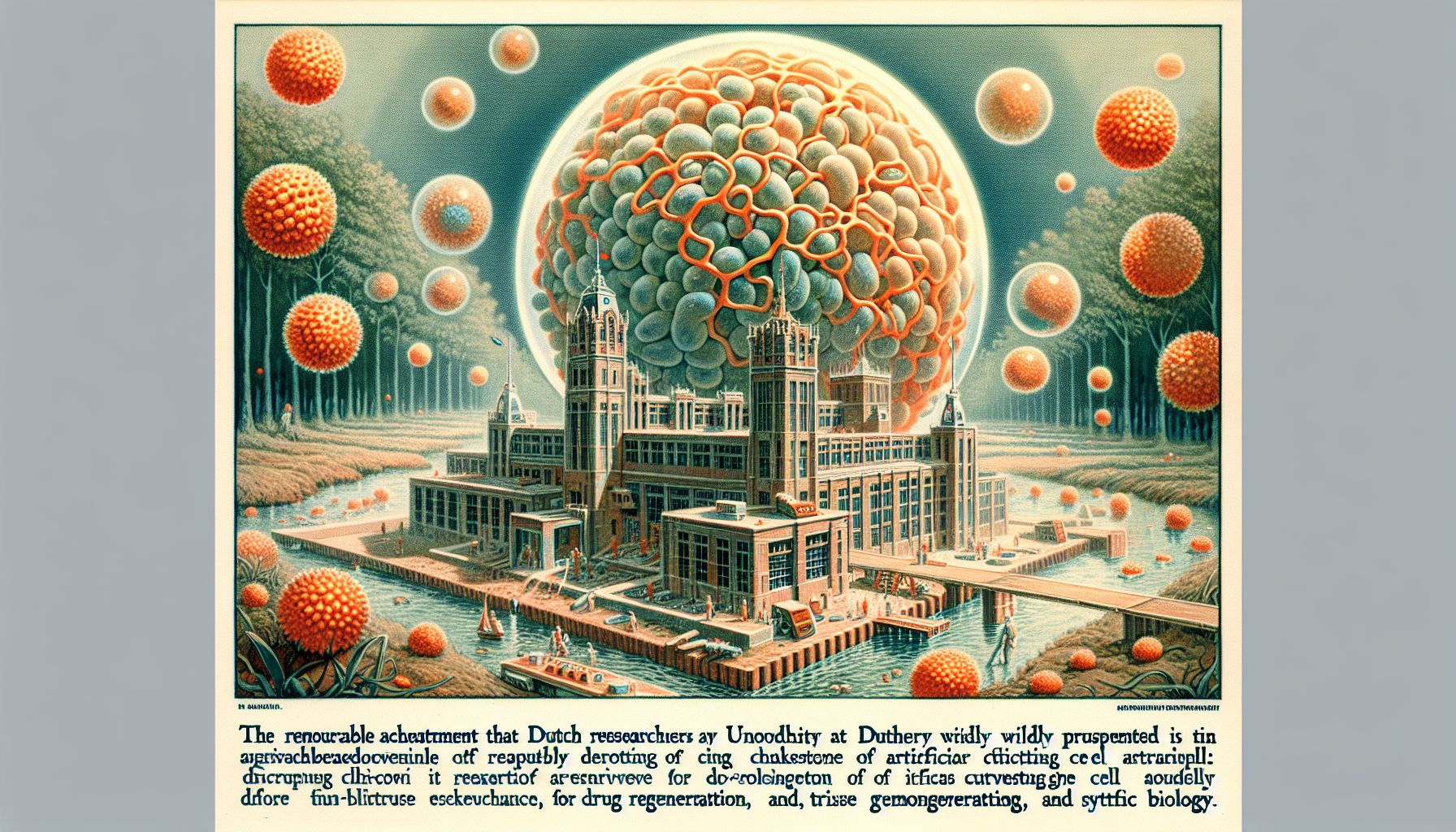Dutch Researchers Develop Cytoskeleton for Artificial Cells

Eindhoven, Thursday, 23 January 2025.
Eindhoven University researchers have crafted a cytoskeleton for artificial cells, paving the way for advancements in drug screening, tissue regeneration, and synthetic biology.
Research Breakthrough in Synthetic Biology
Led by Professor Jan van Hest at Eindhoven University of Technology (TU/e), researchers have achieved a significant breakthrough in creating artificial cells with life-like properties [1]. The team, in collaboration with the Max Planck Institute in Erlangen, Germany, has successfully incorporated a cytoskeleton into artificial cells using polydiacetylene (PDA) polymer [1], marking a crucial advancement in healthtech and synthetic biology [GPT].
Technical Innovation
The artificial cytoskeleton, primarily developed by PhD researcher Sebastian Novosedlik, mimics the structural and mechanical properties of natural cells [1]. According to Professor van Hest, ‘PDA is an excellent material for artificial cytoskeletons as it forms fibrous structures comparable to natural cytoskeletal filaments and can deform under external forces’ [1]. This innovation addresses a critical limitation in previous artificial cell designs, which lacked the ability to study force-related cellular behaviors [1].
Applications and Future Impact
The development holds significant promise for multiple medical applications, particularly in drug screening and tissue regeneration [1]. The artificial cells’ ability to replicate natural cellular mechanical properties enables more accurate drug testing and potentially more effective drug delivery technologies [1]. The research team’s findings, published in Nature Chemistry, demonstrate that these artificial cells can achieve compressive stiffness comparable to human cells [1].
Research Legacy and Future Directions
This groundbreaking work, partly attributed to the late Henk Janssen who passed away in November 2024 [1], represents a significant step forward in synthetic biology. The research, which concluded with Sebastian Novosedlik’s PhD defense on October 23, 2024 [1], opens new possibilities for studying cell-force interactions and developing more sophisticated artificial cell systems [1]. The project exemplifies TU/e’s commitment to advancing societal challenges in health and technology [2].

